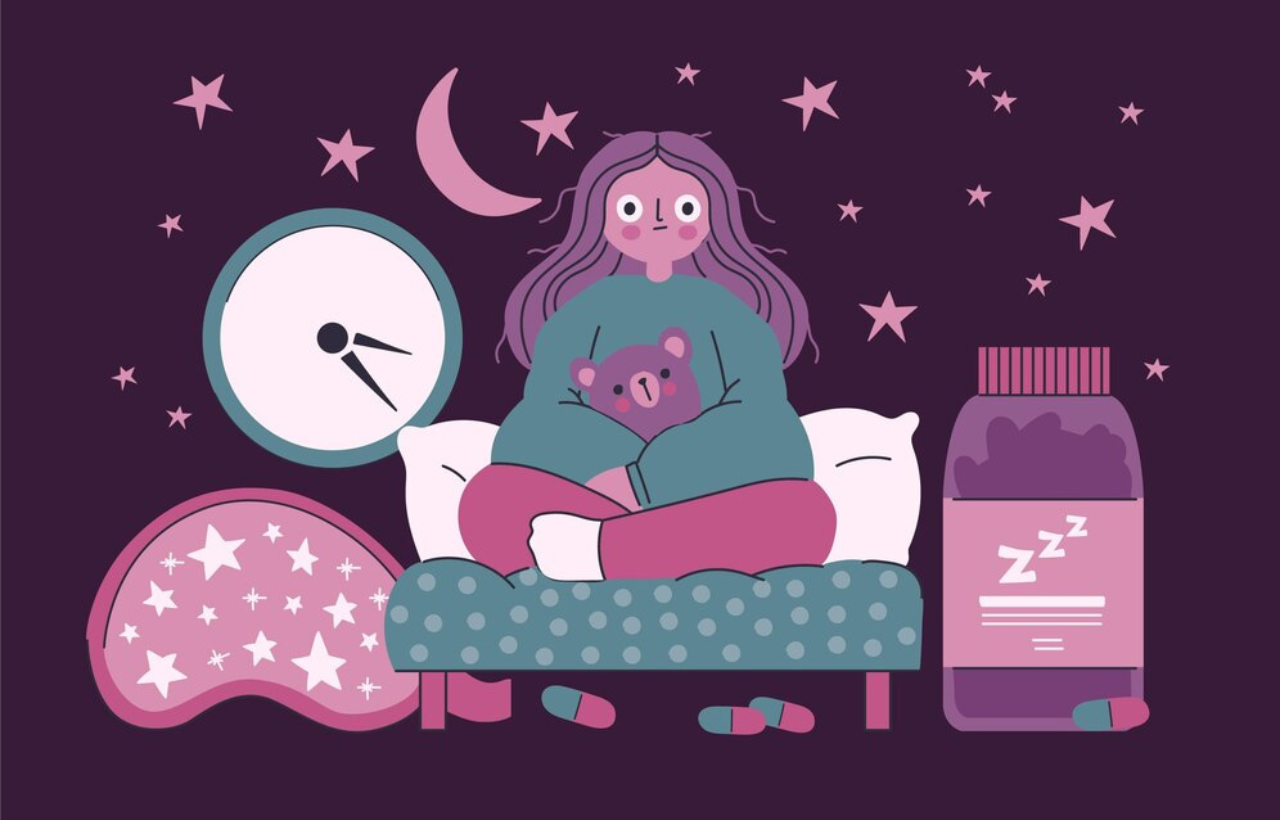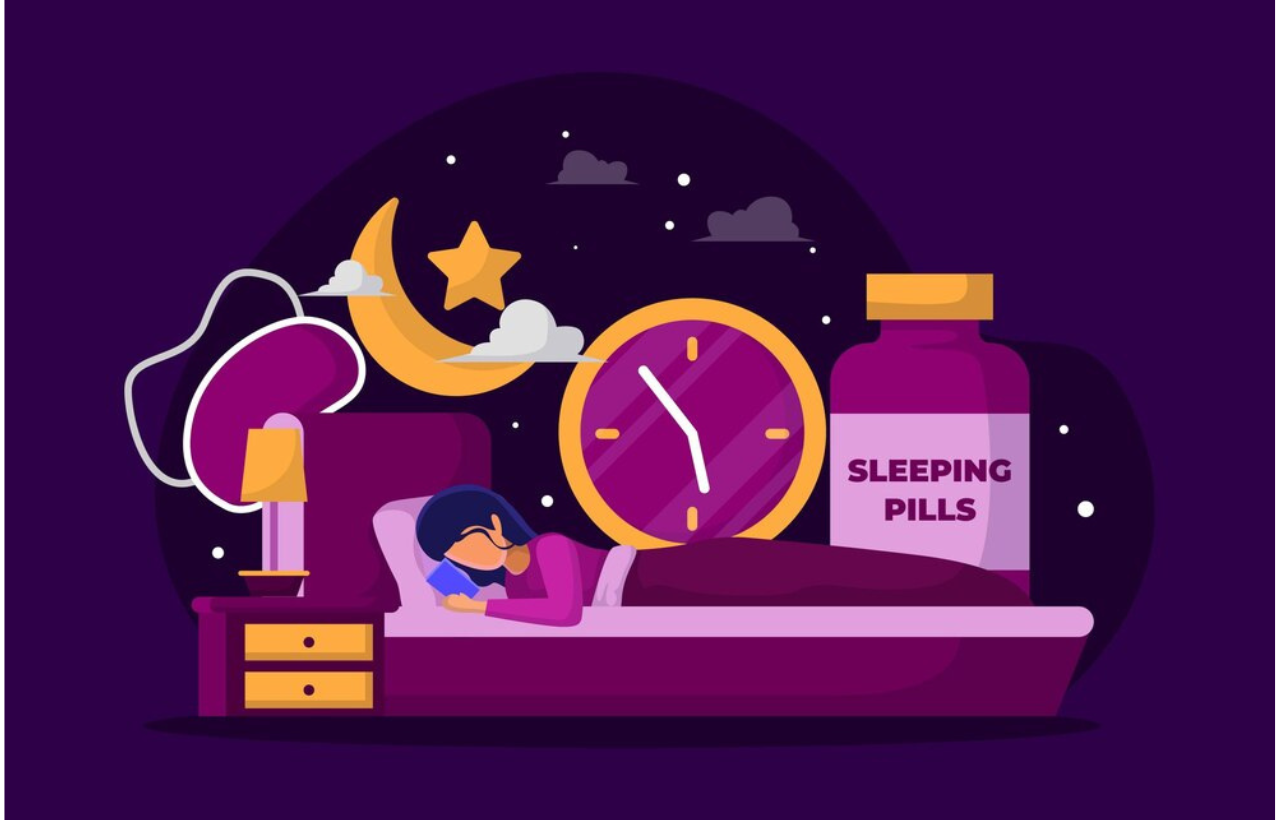Now Reading: Decoding the Hidden Connection Between Insomnia, Depression & Anxiety
- 01
Decoding the Hidden Connection Between Insomnia, Depression & Anxiety

Decoding the Hidden Connection Between Insomnia, Depression & Anxiety
Have you ever lain awake at night while your mind races with worry, trapped by the relentless cycle of Insomnia, Depression & Anxiety? Do you wake up exhausted, burdened by uncertainty and sadness as you face another day? You are not alone. Millions of Americans grapple daily with Insomnia, Depression & Anxiety, battling the overwhelming impact these challenges have on their lives. In this post, we dive deep into the intricate connections between these conditions and share practical strategies to help you reclaim your sleep—and ultimately, your life.
Understanding Insomnia
Insomnia is more than a few sleepless nights. It is a persistent condition that robs you of restorative sleep. When you struggle to fall asleep or wake up frequently, your body and mind suffer.
- Key Signs:
- Difficulty falling asleep
- Multiple awakenings during the night
- Waking too early, feeling unrefreshed
Poor sleep disrupts your body’s natural rhythm. It clouds your judgment, affects your mood, and leaves you feeling drained. Moreover, chronic insomnia can trigger a cascade of negative emotions and impact your overall well-being.
Depression: Symptoms and Impact
Depression is a complex mood disorder with far-reaching effects. It is much more than occasional sadness; it saps your enthusiasm and colors your world in shades of gray.
- Common Symptoms:
- Persistent low mood
- Loss of interest in daily activities
- Overwhelming feelings of hopelessness and isolation
Depression often goes hand-in-hand with sleep disturbances. When your sleep is disrupted, it becomes even more challenging to manage depression. The lack of restorative rest can magnify feelings of despair, making even the simplest tasks feel insurmountable.
Anxiety: Its Effects on Daily Life
Anxiety fills your mind with relentless worry and uncertainty. It triggers a state of hyper-alertness, making relaxation seem like a distant memory.
- Frequent Signs of Anxiety:
- Constant restlessness
- Racing or jumbled thoughts
- A pervasive sense of impending doom
Anxiety can interfere with your ability to unwind at the end of the day. The persistent worry keeps you alert, thus fueling insomnia and perpetuating a vicious cycle. As anxiety increases, it further disrupts your sleep and can intensify symptoms of depression.
The Connection: How Insomnia, Depression, and Anxiety Overlap
These conditions are intricately intertwined. A lack of sleep can set off a chain reaction, where insomnia deepens negative emotions. In turn, depression and anxiety can alter your sleeping patterns, creating an endless loop of distress.
- Cycle of Impact:
- Insomnia: Leads to poor concentration and an unstable mood.
- Depression: Fuels negative thinking and exacerbates the sleep problem.
- Anxiety: Keeps your body in constant alert mode, preventing true rest.
By understanding how these factors influence one another, you can take the first steps toward breaking this cycle. Recognizing the interconnected nature of these conditions is key to finding effective solutions.
Effective Strategies to Manage Insomnia, Depression, and Anxiety
Create a Consistent Sleep Routine
A fixed sleep schedule is essential. Go to bed and wake up at the same time every day. This predictable routine signals your body that it’s time to relax and prepare for sleep.
- Additional Tips:
- Dim your lights an hour before bedtime
- Disconnect from screens to avoid blue light interference
- Set a comfortable and quiet sleeping environment
Practice Mindfulness and Relaxation Techniques
Mindfulness exercises like deep breathing, progressive muscle relaxation, or meditation can help ease your mind. These techniques calm your thoughts and prepare your body for sleep.
- Benefits Include:
- Reduced anxious thoughts
- A clearer mind at bedtime
- Improved overall sleep quality
Even brief sessions throughout the day can make a meaningful difference in managing both anxiety and insomnia.
Exercise Regularly
Moderate exercise is a natural mood booster. Regular physical activity not only elevates your spirit but also improves the quality of your sleep.
- Why It Works:
- It releases endorphins that uplift your mood
- It helps manage stress levels
- It promotes a healthy sleep cycle
Aim for at least 30 minutes of exercise on most days, but try to finish your workout a few hours before bedtime to avoid overstimulation.
Adjust Your Lifestyle and Diet
Small lifestyle changes can have a significant impact on your mental health and sleep patterns.
- Key Adjustments:
- Limit your intake of caffeine and sugar, especially in the evening
- Embrace a balanced diet rich in fruits, vegetables, and lean proteins
- Avoid heavy meals close to bedtime
These tweaks can lead to better sleep quality and, in turn, enhance your emotional resilience.
Seek Professional Guidance
Sometimes, professional support is necessary to break the cycle. Mental health experts can provide personalized advice, tailored to your unique situation.
- Available Options:
- Cognitive-behavioral therapy (CBT)
- Counseling sessions
- Discussions around medication or alternative treatments
Professional guidance can help you develop strategies that are both effective and sustainable for long-term change.
Conclusion
Understanding the intricate link between insomnia, depression, and anxiety is the first step toward reclaiming your life. Each condition can worsen the others, creating a challenging cycle to break. However, with a consistent sleep routine, mindfulness practices, targeted exercise, and lifestyle adjustments, you can begin to restore balance. Always remember that gradual change can lead to significant improvements in both sleep and emotional health.
Disclaimer: This article is intended for informational purposes only and is not a substitute for professional advice. If you experience severe insomnia, depression, or anxiety, please consult a healthcare provider immediately.











